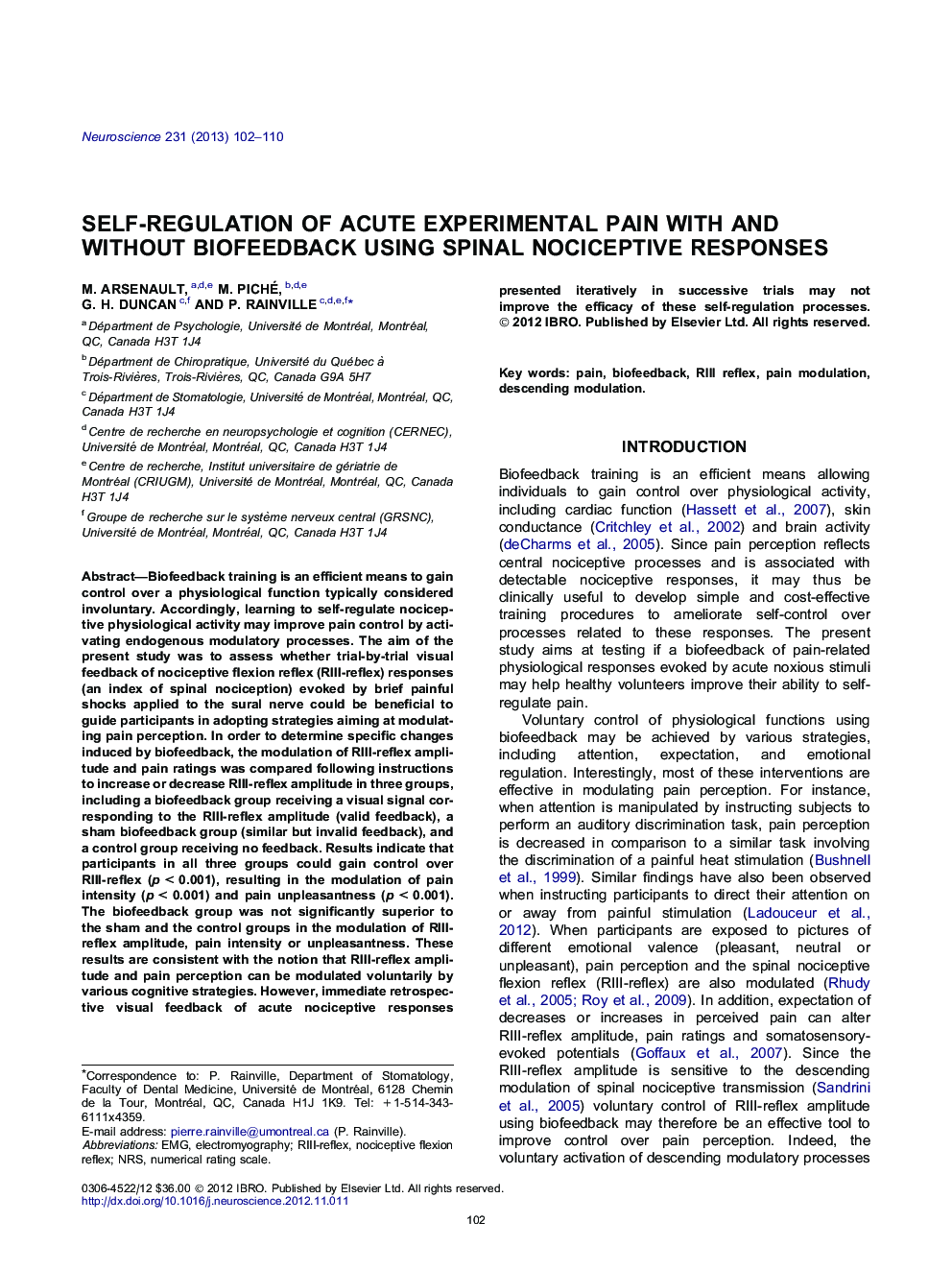| کد مقاله | کد نشریه | سال انتشار | مقاله انگلیسی | نسخه تمام متن |
|---|---|---|---|---|
| 6275176 | 1614845 | 2013 | 9 صفحه PDF | دانلود رایگان |
Biofeedback training is an efficient means to gain control over a physiological function typically considered involuntary. Accordingly, learning to self-regulate nociceptive physiological activity may improve pain control by activating endogenous modulatory processes. The aim of the present study was to assess whether trial-by-trial visual feedback of nociceptive flexion reflex (RIII-reflex) responses (an index of spinal nociception) evoked by brief painful shocks applied to the sural nerve could be beneficial to guide participants in adopting strategies aiming at modulating pain perception. In order to determine specific changes induced by biofeedback, the modulation of RIII-reflex amplitude and pain ratings was compared following instructions to increase or decrease RIII-reflex amplitude in three groups, including a biofeedback group receiving a visual signal corresponding to the RIII-reflex amplitude (valid feedback), a sham biofeedback group (similar but invalid feedback), and a control group receiving no feedback. Results indicate that participants in all three groups could gain control over RIII-reflex (p < 0.001), resulting in the modulation of pain intensity (p < 0.001) and pain unpleasantness (p < 0.001). The biofeedback group was not significantly superior to the sham and the control groups in the modulation of RIII-reflex amplitude, pain intensity or unpleasantness. These results are consistent with the notion that RIII-reflex amplitude and pain perception can be modulated voluntarily by various cognitive strategies. However, immediate retrospective visual feedback of acute nociceptive responses presented iteratively in successive trials may not improve the efficacy of these self-regulation processes.
⺠Pain perception can be regulated voluntarily by various cognitive-emotional strategies. ⺠These strategies activate descending mechanisms affecting spinal (RIII) responses. ⺠Biofeedback did not help subjects to self-regulate pain or spinal responses.
Journal: Neuroscience - Volume 231, 12 February 2013, Pages 102-110
